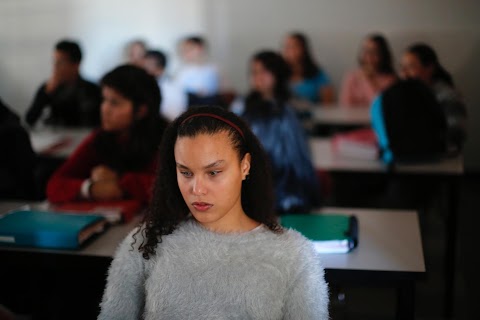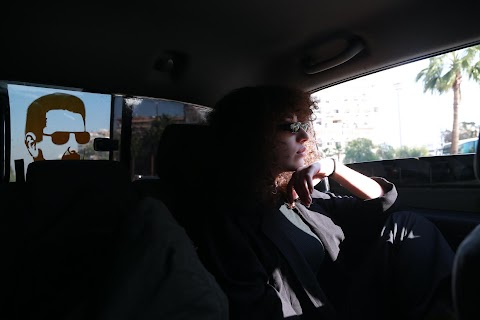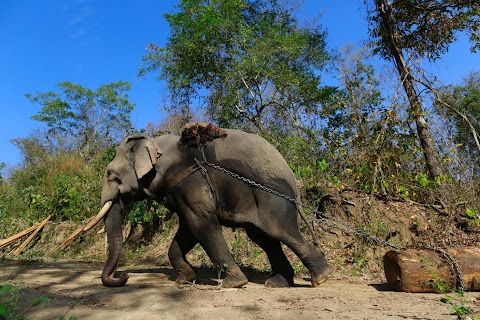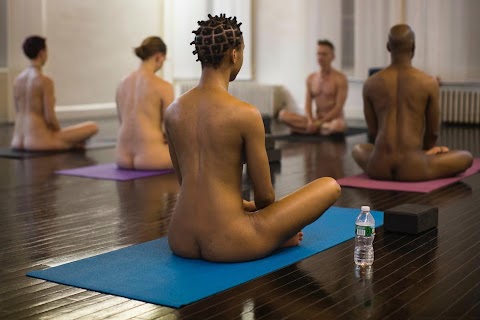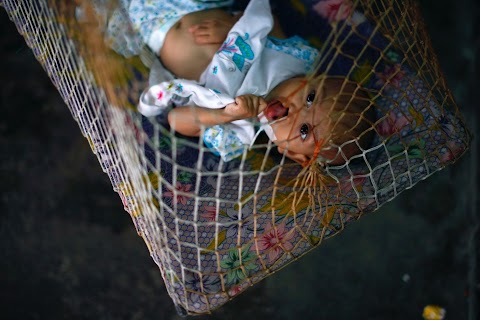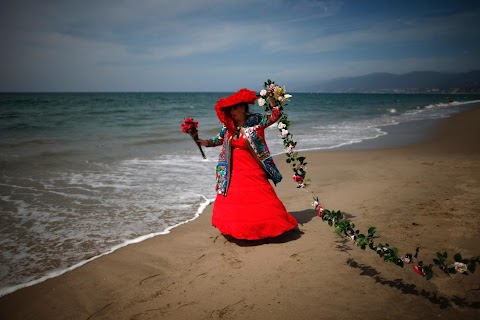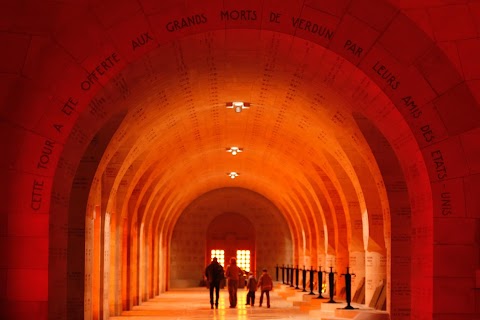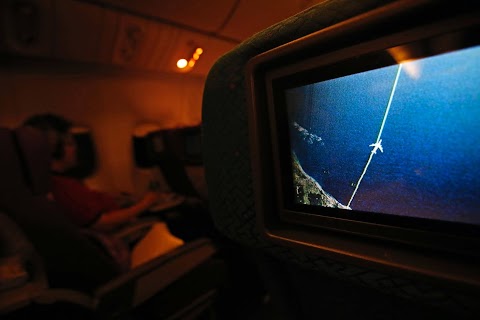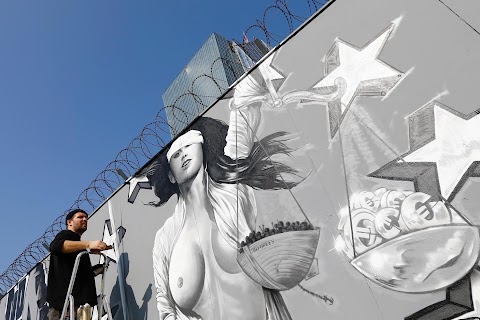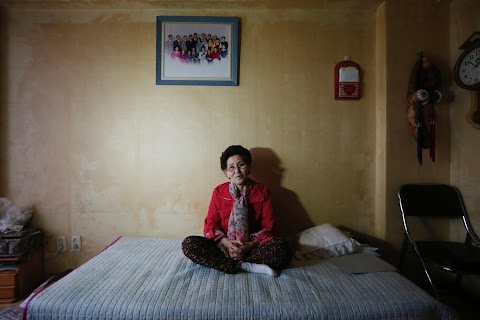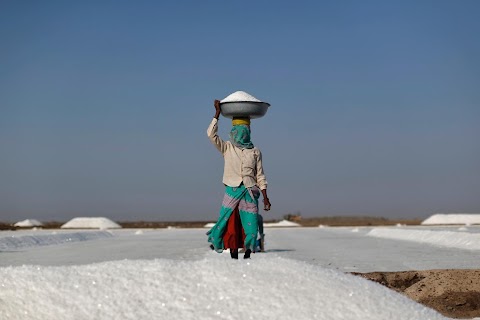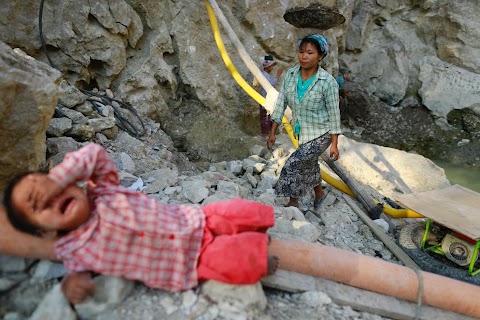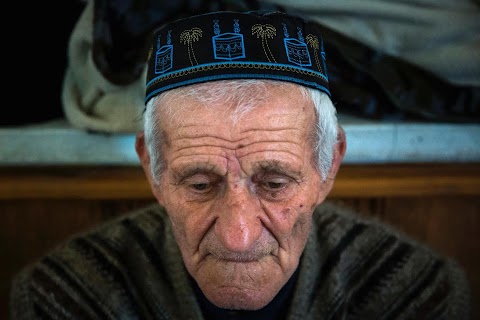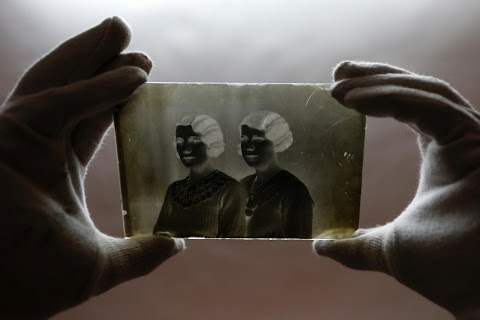
Hip, young and in Kabul
 Morteza Nikoubazl
Morteza Nikoubazl
Afghanistan's recent history has been a turbulent one from the austere and repressive years of Taliban rule, to the U.S.-led invasion of 2001.
Yet despite upheaval and fresh violence that has flared in the run-up to the country’s April 5 election, the Afghan capital Kabul is home to a vibrant youth scene of musicians, artists, athletes and activists. Reuters photographer Morteza Nikoubazl documented their lives.

In the image above, a group of young music students take part in a training session at a cultural centre in Kabul, which now has its own musical and artistic scene.
The arts were not allowed to flourish under the former rule of the Islamist Taliban, who frowned upon painting and banned cinema, music and theatre outright.
But now, while Afghan society remains conservative and still grapples with instability, artists have a much greater outlet.

Boys play video games in a market in Kabul, where luxury restaurants, cafes and shopping malls do business, even in the shadow of a new wave of violence in the lead-up to the election.
The vote on April 5 is supposed to mark the first democratic transfer of power in Afghanistan's history.
However, the country has been hit by a tide of unrest as the Taliban has ordered its fighters to disrupt the ballot and threatened to kill anyone who participates.

A young Afghan artist named Shamsia Hassani poses for a photograph on the roof of her graffiti workshop in Kabul.
Hassani's family comes from Kandahar, the Taliban's birthplace, and like millions of Afghans fleeing violence she grew up in neighbouring Iran as a refugee.
The question of what will happen to the art scene to which Hassani belongs remains open in this crucial year for Afghanistan, as the country prepares for an election and the scheduled withdrawal of most foreign troops.
Slideshow

An art student uses his phone as he leans against the graffitied wall of a cultural and educational centre in Kabul.

Members of an Afghan band named Tanin, Mahmoud Hejran (second left) and Zabih Hosseini (centre) play the guitar and sing as they travel back to their music studio after performing on a live TV program.

A Bollywood movie plays on a screen in the front of a vehicle as it drives along a Kabul street.

Videographers work during the filming of a live TV program.

Afghan rapper Mahmoud Hejran shows his band's symbol as he poses for a photograph at his apartment, which doubles as a music studio.

Afghan pop Star Arash Barez (left) signs a notebook for a fan after giving a concert at an event to mark International Woman's Day.

A woman paints at a private art institute.

An Afghan artist poses for a photograph in the Turquoise Mountain Institute.

Young Afghans talk in the outdoor area of a cafe.

A mannequin is displayed in a shop window.

An Afghan trader watches television as he sits in his store at a shopping centre.

A customer stands at an Apple store in Majid shopping mall in Kabul business district.

A view shows the interior of the City Walk shopping centre in central Kabul.

A bodybuilder poses by the entrance of his bodybuilding club.

A female powerlifter shows her strength during a local sport ceremony.

A soccer player trains at Golab Trust Sport Complex in Kabul.

Women watch a local sport ceremony.

An Afghan couple walk hand-in-hand in a bazaar.

A young boy carries a plastic bag as he walks under a billboard in Kabul.

A man roller blades along a street in the city.

Afghan men walk past the education ministry building in Kabul.

A security guard sits in front of a barber shop outside the Kabul-Dubai wedding hall.

A hairstylist cuts a customer's hair at a barbershop.

A wedding photographer holds out bridal portraits at his photo studio.

A groom stands next to his car as he poses for a photograph just after leaving a barber's.

A boy stands in front of a bridal dress shop.
"Kabul is a city with many faces. One of its less-known sides is highly modern, full of educated people, rap and rock musicians..."
Kabul is a bustling city, full of people who want to see their country become less violent and more stable.
As I documented life in the capital this month, I met lots of young people who shared their thoughts about the future of Afghanistan: painters, actors, musicians, even a rapper.
Many had once lived as refugees in my own home country, Iran, and some were even born there. But now they were back in their troubled homeland, Afghanistan.
I asked them what had made them decide to come back to Afghanistan, a country that is far from being safe or comfortable? The nation has lived through decades of war and violence after the Soviet invasion of 1979, civil war, militant rule and the U.S.-led invasion of 2001. Now Afghanistan is preparing for an election on April 5, it has been hit by a new wave of violence from Taliban militants who want to disrupt the vote.
In addition to this, people face practical problems. One person I met told me that sometimes, especially during the winter, electricity cuts here can last up to 12 hours a day.
And yet the people who I met said: we love our country. If we leave it, it will collapse. A hairstylist told me he felt free in Afghanistan because he was not treated like a stranger.
Kabul is a city with many faces. One of its less-known sides is highly modern, full of educated people, rap and rock musicians and buildings with modern facades. People eat out in luxury restaurants, visit shopping malls and young people speak English. The culture is very different to that enforced by the Islamist Taliban when they were in power and banned cinema, music, theatre and some kinds of painting.
On the other hand, many people – even young men – still have a problem with having their picture taken. People are very conservative here. For me as a photographer, it seems that when a society doesn’t want to be seen by others in pictures, it means it is in hiding, and perhaps still living in the past.
Something that affects everyone’s lives here is the presence of foreign troops in Afghanistan, most of whom are scheduled to withdraw this year. The people I met were thinking about it a lot.
Some believe foreign troops should leave and let Afghans decide on their own future. They think that Afghanistan is a powerful nation capable of making itself safe. They are convinced foreigners are meddling in Afghan politics, trying to influence who should be the next president. They think their votes are not important and accuse the West of failing to bring democracy.
Others believe that once foreign troops leave there will be more instability because the Afghan army is not strong enough yet to provide security. They believe their country will return to where it was 10 or 15 years ago, and that fragile recent gains in human rights and the rule of law will be rolled back.
Some of the artists I met were particularly worried that they may face a choice: living in their own country without art, or having to emigrate once again.

An Afghan man walks past a huge 3G logo on a wall in central Kabul.
